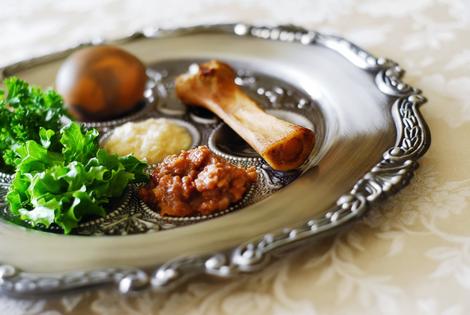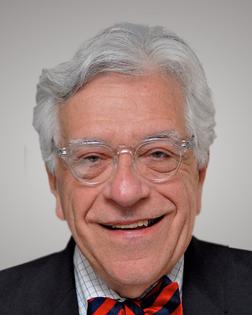The God Squad: Happy Passover
Time to return from our interfaith journey of the past two weeks as we learned about the Hindu holiday of Holi and the Muslim holiday of Ramadan. What is ahead of us is a holy week for Jews and Christians here on planet earth. Passover begins Friday, April 15 at sundown, which is also the end of Good Friday in anticipation of Easter Sunday on April 17. Rather than bunch them together in a single column, I wanted to give each holiday its own space to sing its song of salvation. Father Tom Hartman and I used to divide this up each springtime with Tommy writing the Passover message and me writing the Easter message. I can’t do that anymore. Tommy will have to speak his Passover message to the angels.
The meal celebrating the arrival of Passover is called the seder meal. Seder means “order” and the rabbinic book containing the order of the prayers and stories and biblical verses is called a Haggadah which means “the telling”. It is the story of the Exodus from Egypt. This Passover this is what I want you to know:
The Passover seder is a home ritual not a synagogue ritual.
Passover is welcomed at home with family and friends and guests. Tommy loved being at my home for the seder, though I was never sure if he liked the prayers and songs more than Betty’s brisket. The rabbis called the Jewish home a mikdah m’at, which means “a little Temple”. The old Temple in Jerusalem is long gone but every Jewish home will recreate itself on that Passover night into a Temple of sacrifice, thankfulness and joy. The synagogue has its place, but for Jews the home is the most natural place of sanctity. The seder delivers that spiritual message for the generations. Studies show that the Passover seder meal is the only Jewish ritual celebrated by most of the Jewish people. Some seders are quite original, some are a little too long, and some are a little too short, but they are all a collective act of praise by the Jewish people to God and to God’s liberation that took us out of slavery into freedom and a holy land.
A matzah is not a cracker.
In Judaism the only bread that has two blessings is the matzah. It is blessed with the traditional blessing over all bread and with the blessing that eating it is a special commandment. This is because the matzah is the most famous symbol of the Exodus. It is a remembrance of the bread baked in haste that did not have time to rise. In the rabbinic interpretation, matzah is just flour and water mixed together and baked within 18 minutes after the mixing. An unleavened cracker is not a matzah because nobody in the cracker factory is counting off 18 minutes. The matzah is a symbol of slavery. It is called lechem oni, “the bread of affliction”. It is the symbol of hunger. So, the holiday of Passover and its rich bounty of holiday foods (I already mentioned Betty’s brisket) is bracketed by the eating of simple poor unleavened bread. Matzah is eaten early in the seder and matzah is eaten at the very end of the seder meal when the children find a hidden piece of matzah and bring it to the table at the dessert called (in Greek) the afikomen. Let us take the message of the matzah that “all who are hungry should come and eat” and let us work for a day when no one made in the image of God will have to eat poor bread as they flee any modern pharaoh.
Egypt is not just a place. It is a condition.
Egypt is more than just a place of slavery. The word for Egypt in Hebrew is mitzraim, which comes from the root meitzar. A meitzar is a narrow passage between two high cliffs. It is a narrow canyon pass — a place of constriction. Therefore, the Egypt in the Passover remembering is not just a place but a condition of being hemmed in. It is about feeling that there is no way out. The Bible teaches that every Jewish person must say on Passover, “I am doing this because of what God did for me when I left Egypt.” (Exodus 13:8). Of course, this is not true. Only our ancestors left Egypt. However, if Egypt is a condition of spiritual constriction, then all people in any age — Jews or non-Jews — who are trapped in a meitzar can pray for another Exodus. This Passover, I will pray for the people of Ukraine and for a liberation from invasion and suffering they did not cause and do not deserve. May God free them with a strong hand and an outstretched arm.
A zeesen pesah — A sweet Passover!
Enjoy! Enjoy! Love this!
(Send ALL QUESTIONS AND COMMENTS to The God Squad via email at godsquadquestion@aol.com. Rabbi Gellman is the author of several books, including “Religion for Dummies,” co-written with Fr. Tom Hartman. Also, the new God Squad podcast is now available.)
©2022 The God Squad. Distributed by Tribune Content Agency, LLC.
(c) 2022 THE GOD SQUAD DISTRIBUTED BY TRIBUNE MEDIA SERVICES, INC.












Comments